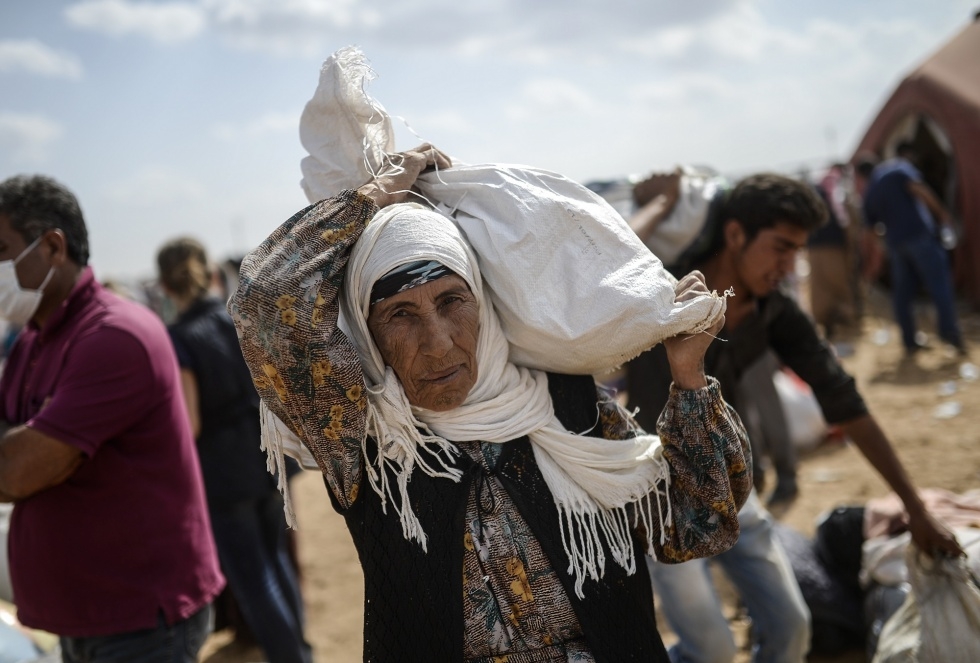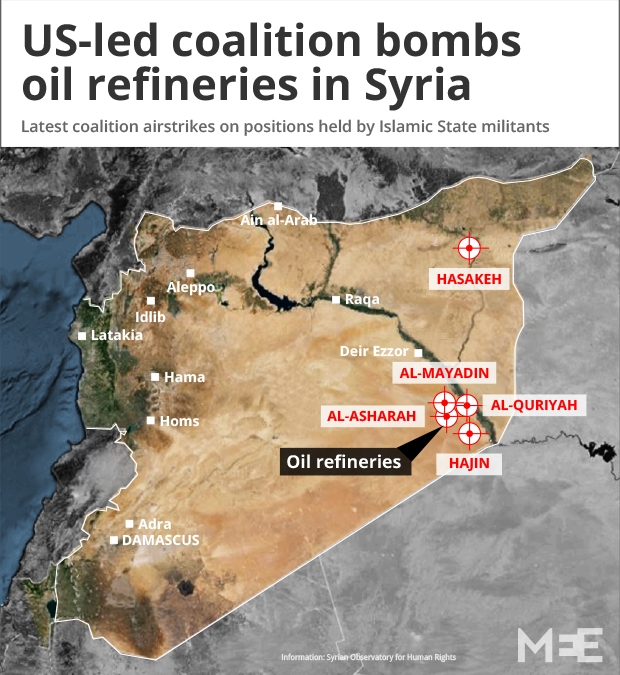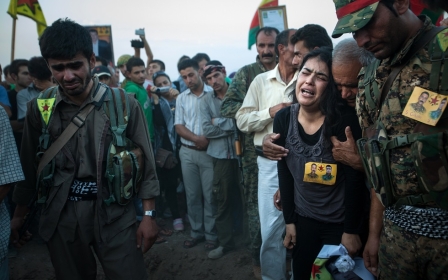Islamic State forces close in on Kobane as US led-coalition hits back

The US-led coalition hit Islamic State group targets around a Syrian town on the Turkish border Saturday where tens of thousands have fled a militant assault, a monitoring group said.
The news reports issued by the Syrian Observatory for Human Rights was confirmed by Kurdish officials who said that the US-led coalition had informed them ahead of time, about which targets would be hit.
"We definitely welcome... the international coalition in the fight against (IS)," senior Syrian Kurdish official Newaf Khalil Khalil told AFP, adding that the latest strike hit the IS-held town of Ali Shar, east of Ain al-Arab.
The strikes came a day after hundreds of Kurdish fighters crossed from Turkey to reinforce Ain al-Arab's Kurdish militia defenders, breaking through the border fence with Turkish security forces apparently turning a blind eye.
The US has so far not confirmed the reports, but pillars of smoke could be seen billowing on the other side of the Turkish border, Al Jazeera reported.
Kobane has been under growing pressure from IS for weeks, with militants reportedly shelling the besieged heavily and sending some 160,000 largely Kurdish refugees from the area fleeing into Turkey.
The reported strikes around the mainly Kurdish town of Ain al-Arab, as it is known in Arabic, or Kobane as it is known in Kurdish, came as the US-led coalition widened its air war against IS targets in Syria as part of "near continuous" raids against the jihadists.
Both the Observatory and Syrian state media had also reported coalition air strikes around the town on Tuesday night.
Bombardment intensifies
The US-led coalition overnight and this morning also expanded its campaign against militants in eastern and central Syria, hitting the Homs province for the first time on Saturday, and also targeting the town of Minbej, near the western limit of IS control, the Observatory said.
Further attacks were also unleashed on Raqqa, which Islamic State have made their headquarters, the Britain-based monitoring group said, while adding that IS-held oil fields had also come under attack from the air.
Observatory director Rami Abdel Rahman said the targets hit in Homs province were far away from the front line with forces loyal to President Bashar al-Assad, who control Homs city, Syria's third largest.
"The US-Arab coalition has for the first time struck IS bases in the eastern desert of Homs province," Abdel Rahman said, adding that the positions were in the area of Al-Hammad, east of ancient city Palmyra.
Washington has been keen not to let Assad's forces exploit the air campaign against IS to take the upper hand in the more than three-year-old civil war.
However, speculation about increasing cooperation between Assad and the coalition is growing.
Earlier this week Iraqi National Security Advisor Faleh al-Fayyad visited Syria to discuss the ongoing operation, leading some analysts to comment that Fayyad might be acting as an intermediately. The US continues to deny that it has had any direct cooperation with Damascus, although reports have emerged in Syrian media claiming that the US is informing authorities about some of its strikes.
According to Western diplomatic sources quoted in the pro-government al-Watan paper, the US and Syria are using third party operatives to exchange security information about the movements of weapons convoys, leaders and other Islamic State activities, though there is still no direct discussion.
Though the paper pointed out that the US was unwilling to acknowledge any convert collaboration with Syria, the sources conceded that the US would eventually have to acknowledge its cooperation with the Assad government.
The United States and its Arab allies first launched air strikes against IS and other militant positions in northern and eastern Syria on Tuesday.
A US defence official told AFP on Friday that the mission is now similar to US-led air raids against IS in Iraq, with "near continuous" combat flight operations over Syria.
New MEE newsletter: Jerusalem Dispatch
Sign up to get the latest insights and analysis on Israel-Palestine, alongside Turkey Unpacked and other MEE newsletters
Middle East Eye delivers independent and unrivalled coverage and analysis of the Middle East, North Africa and beyond. To learn more about republishing this content and the associated fees, please fill out this form. More about MEE can be found here.




